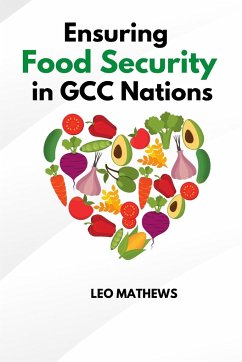Ensuring food security in the GCC (Gulf Cooperation Council) nations is a vital issue that requires immediate attention. In recent years, the region has faced numerous challenges that threaten food security, including water scarcity, climate change, and population growth. In this context, Leo Mathews, a renowned expert in food security, has written an insightful article on how the GCC nations can ensure food security. According to Mathews, the GCC countries, which include Bahrain, Kuwait, Oman, Qatar, Saudi Arabia, and the United Arab Emirates, have made significant progress in achieving food security in recent years. However, more needs to be done to ensure that all citizens have access to safe, nutritious, and affordable food. One of the key challenges facing the GCC nations is water scarcity. The region is known for its arid climate, and water resources are limited. As such, Mathews suggests that the GCC nations need to invest in water-efficient agricultural technologies, such as drip irrigation and hydroponics. These technologies can help farmers produce more food with less water, thus ensuring that water resources are used more efficiently. Another challenge facing the GCC nations is climate change. The region is already experiencing the impacts of climate change, including rising temperatures and more frequent droughts. Mathews argues that the GCC nations need to take a proactive approach to climate change by investing in climate-resilient crops and technologies. For example, crops that are resistant to heat and drought can help farmers continue to produce food even in the face of changing weather patterns. Population growth is also a significant challenge facing the GCC nations. The region's population is expected to continue to grow in the coming years, which will put additional strain on food resources. Mathews suggests that the GCC nations need to invest in programs that promote sustainable agriculture and food production, such as organic farming and urban agriculture. In conclusion, ensuring food security in the GCC nations is a complex issue that requires a multifaceted approach. Leo Mathews' article highlights the challenges facing the region and offers practical solutions for ensuring that all citizens have access to safe, nutritious, and affordable food. By investing in water-efficient agricultural technologies, climate-resilient crops and technologies, and sustainable agriculture programs, the GCC nations can secure their food supply and build a more resilient future.








